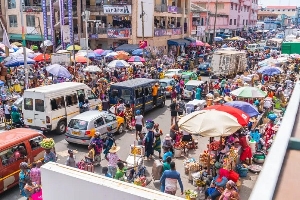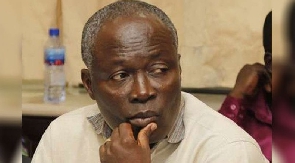Ghana’s economic growth accelerated in the third quarter to the fastest pace in almost five years after solid gains in the industrial sector.
Gross domestic product grew 7.2% in the three months through September from a year earlier, compared with a revised 7% increase in the prior quarter, Government Statistician Samuel Kobina Annim told reporters in the capital, Accra, on Wednesday.
It was the fastest pace of year-on-year growth since 7.9% was recorded in the fourth quarter of 2019, easily beating the median of three economists’ estimates in a Bloomberg survey for a 5.4% expansion.
The cedi rose 0.3% to almost a seven-month high of 14.7034 per dollar at 10:33 a.m. in the capital, Accra.
The data follows the election victory earlier this week of former President John Mahama, after voters rejected the incumbent administration amid anger over a cost-of-living crisis in the West African nation.
Ghana is exiting a prolonged debt restructuring and is in the second year of an International Monetary Fund program that’s included painful austerity measures.
The industrial sector grew by an annual 10.4% in the period after expanding 9.4% in the second quarter. That included a 17.1% increase by mining and quarrying, which expended for its fourth straight quarter.
Growth in the services sector picked up to 6.4% from 5.7%, helped by a 17.1% jump in the information and communications sector, while the pace of expansion in agriculture slowed to 3.2% from 6%.
The performance of agriculture, which employs an estimated 40% of the workforce, came as the cocoa sector contracted by 26%, the fifth consecutive quarter that it has shrunk.
Cocoa output by the world’s second-largest producer of the chocolate ingredient has suffered from a range of headwinds including bad weather, crop disease, a shortage of agricultural inputs, and the smuggling of beans over its borders, where they command a higher price.
Watch as Ghanaians share their emotions on John Mahama's presidential win
Click to view details



Business News of Wednesday, 11 December 2024
Source: bloomberg.com

















